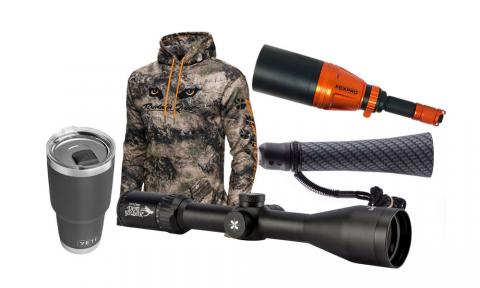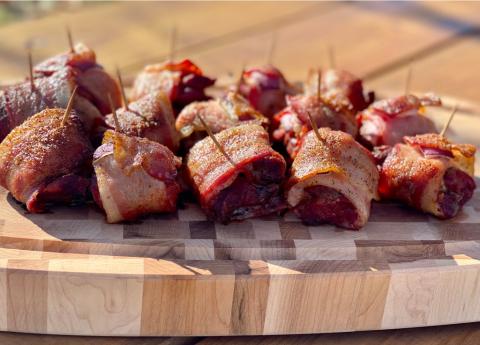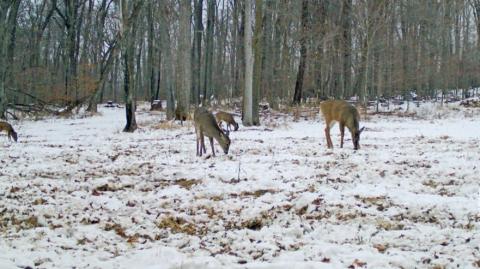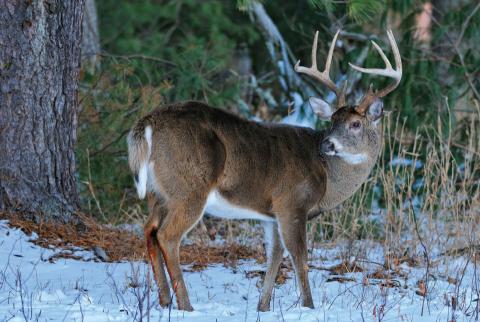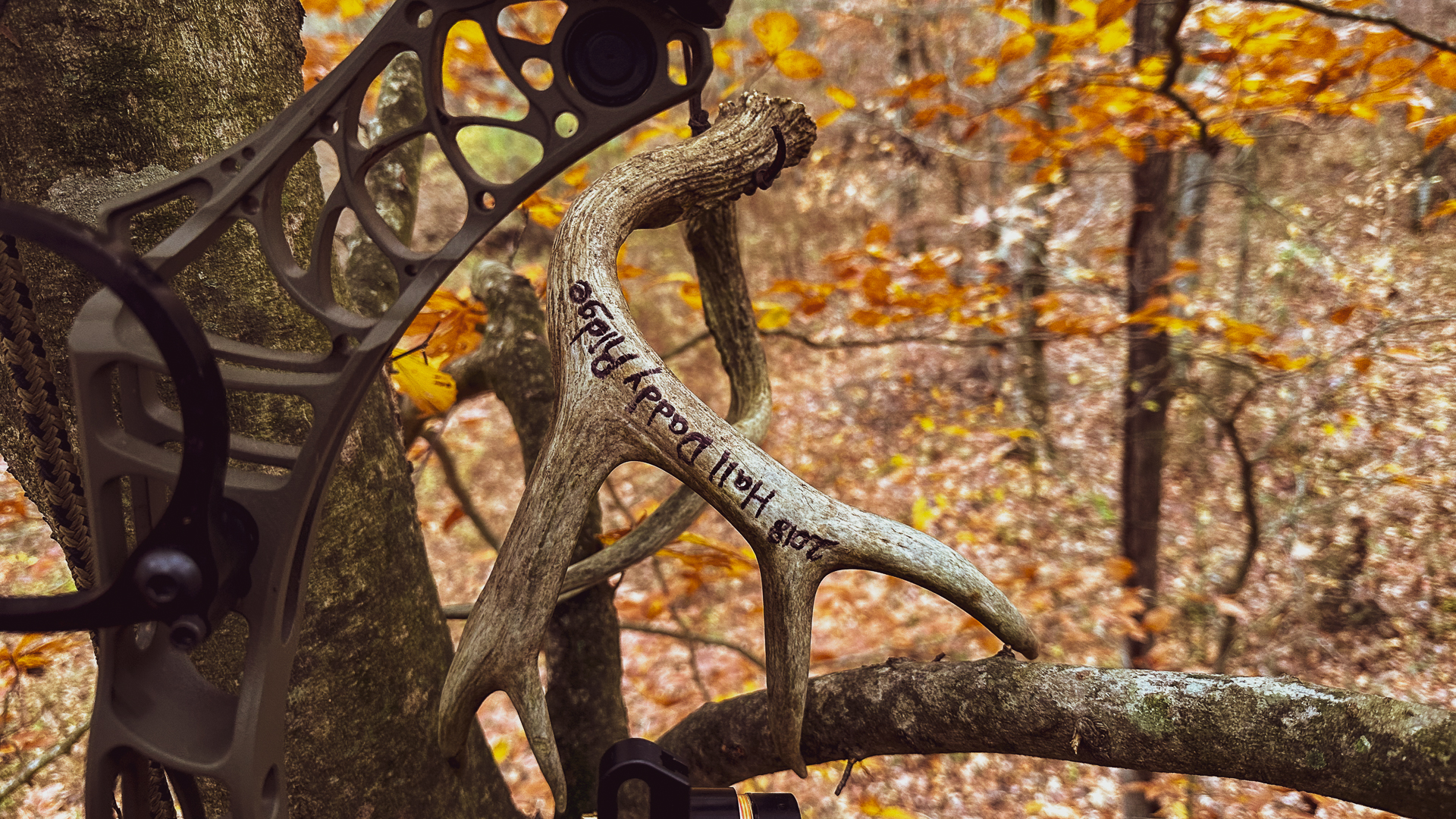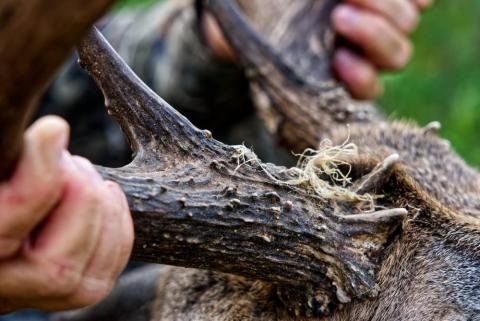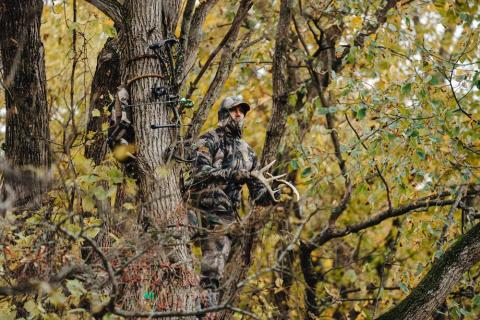provided by John Phillips
One of the fears of adults with the desire to hunt is getting lost in the woods. So, in the Adult Mentored Hunt Program, one of the first subjects taught is what to do if you become lost. Paramedic Scott Carroll is the teacher. Many people die within one mile of finding their way out. What most often happens when a person realizes that he or she is lost in the woods, is that his blood pressure goes up, and he starts walking in circles.
Once you realize you’re lost in the woods, the first emotion you often feel is fear. You may begin not thinking straight and not make rational decisions. So, to get rescued, calm down. The best way to keep from staying lost is to tell someone where you’re hunting. Put your location on a note and leave it on the dashboard of your car, so that it can be read through the front windshield. Leave a detailed map of where you’re hunting and what time you plan to be back to your vehicle.

What Your First Needs Are When Lost
1. Your first need is shelter. As soon as you realize you’re lost, look for or use some type of shelter. You also can build a shelter, which will help you feel safe. Take deep breaths and continue to calm down. Always find or build a shelter before dark. You can determine how much time you have before dark through several steps. Remember, you’re hunting in a valley, sunrise comes much later than it does if you’re hunting on flat ground. Hold your hands up, spread your fingers, let your index finger touch the bottom of the sun in the afternoon and point your pinky finger at the mountains where the sun’s going down. The width of your fingers represents about an hour. So, if you measure the sun with your four fingers, you can get a fairly good idea of how much time you have before the sun goes behind a hill or a mountain, and you’re in the dark. You can purchase an inexpensive poncho online or at stores that will make a shelter, if you have little time to find or build a shelter. When you look for natural shelters, search for trees that have fallen over to the ground, caves or small indentations in the mountain that you can get in to and stay out of the weather.
2. Your second need is water. If you haven’t brought water with you, you’ll need a water- purification system, like Aqua Tabs available at many sporting-goods stores and big box stores, like Walmart, Cabela’s, Bass Pro Shops, or you can order them online. Another inexpensive, easy-to-carry purification system is Life Straw.
Your body needs about a gallon of water per day. Now that you have shelter, which gives you a place to live until you’re found, and you have a water source and a water-purification system, you can remain hydrated. Look for streams, rivers or any type of clean water that’s flowing to lessen the possibilities of having bacteria in your water. If you find a flowing stream that you plan to use as a water source, walk upstream about 50-100 yards, and make sure there are no dead animals or any other items that may contaminate your water source. Your body can go 48 hours without feeling the symptoms of dehydration. Also, you may see garbage out in the woods. Try to find an old cup, a tin can or a disposable plastic water bottle that you can use to collect water with and that you can use to boil water. If you use a plastic water bottle, fill it up with water, hold it above the flame of the fire - not directly into fire but well above the fire - and you’ll get warm water. If the bottle touches the flame, it will melt. If you hold it or place it above the flame, the bottle may deform, but it still will hold water.
3. The third need is a way to create fire. Fire serves several purposes - providing a source of warmth, giving you protection from animals and making you feel more secure, which helps you stay calm and gives you the ability to make better decisions.
Why You Must Control Your Mind and Thoughts When Lost
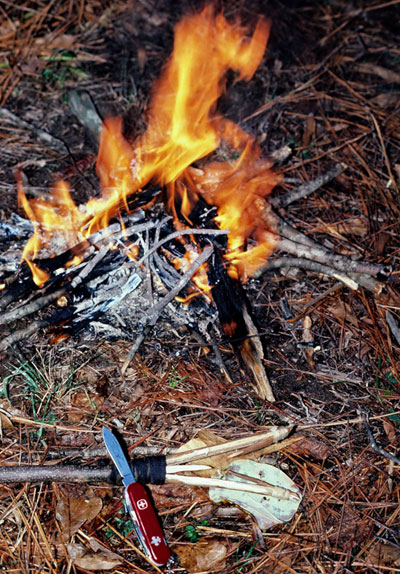 Don’t let your mind wonder. The best way to gain mind control is to first think about what you have - shelter, water and fire. With those problems solved, look at your shelter, and see what you can build on to it. Keep your mind busy thinking about what else you can do to survive; that keeps your mind from thinking about any bad things that can happen.
Don’t let your mind wonder. The best way to gain mind control is to first think about what you have - shelter, water and fire. With those problems solved, look at your shelter, and see what you can build on to it. Keep your mind busy thinking about what else you can do to survive; that keeps your mind from thinking about any bad things that can happen.
After completing these tasks, start thinking about food. You can survive for three weeks without food, so food is the last thing to think about if you’re lost in the woods. If lost when hunting, you’ll have a weapon that can harvest game to eat and fire that enables you to cook the game that you take. In many states like Alabama, many other food sources exist for food in a survival situation, including squirrels, rabbits, maybe a deer, or porcupines that move slowly and are a great source of meat. They don’t run very well, and they won’t shoot their spines at you. When you cook animals in a survival situation, cook them with the skin on, because the fire will singe off all the hair on a squirrel or a rabbit. When the hair’s gone most often the meat will have been cooked at a safe temperature to eat. But don’t cook a porcupine with the skin on to keep the air in the quills from expanding, blowing up and shooting quills in all directions. So, skin a porcupine before you cook it.
Why to Remain Where You Are:
Hunters, especially individuals who have been hunting for some time, will think, “I can find my way out of the woods.” However, if you continue to walk after you know you’re lost, you’ll either walk in circles, become more lost or not have enough time to find or build a shelter, identify a water source near your shelter and build a fire. If you have no idea of where you are in the woods, don’t try to rescue yourself; stay where you are. If you scout the area you plan to hunt, you’ll notice landmarks where you leave your vehicle, like streams, bridges, mountains and perhaps some unusual trees that you can use to orient yourself.
GPS receivers on your phone and hand-held GPS receivers can be a tremendous help to enable you from getting lost. On cloudy, rainy, snowy days or heavy cloud-cover days, your GPS may not be able to receive signals from satellites that show you where you are, where your vehicle is, and which direction you need to walk to get back to your vehicle. Also, since many hand-held GPS receivers operate on batteries, keep extra batteries to replace the dead batteries in your GPS. You can use a compass, too. Look at your compass before you go into the woods and remember the direction that you’ve taken to go into the woods. Then, if you get lost, you can use the compass to walk back to your vehicle in the opposite direction of the way you’ve walked into the woods. Also, remember the sun rises in the east and sets in the west.
What Essentials to Take with You
Every hunter must have a first-aid kit, including antiseptic wipes, Tylenol or aspirin, several days of medications you take every day and some sugary snacks like snickers, M&Ms or other candies to lift your mood and keep your blood sugar from dropping significantly. If you’re feeling woozy or dizzy, stop and eat a candy bar.
You need a knife or anything that can create a fire quickly or easily like waterproof matches or a Butane cigarette lighter. If for some reason you’ve lost your bow or gun, you can use your shoe laces to lash that knife to a stick, and the knife becomes a digging tool and can be used as a post to support your poncho to make a quick and easy shelter. You can use the knife and stick to defend yourself and for hunting. With a fire, you can purify water, cook food and warm yourself. Remember the four steps to take when you discover you’re lost: build shelter, find water, start a fire, and look for food. Then you can survive more comfortably for a long period, if need be.
What Emergency Survival Procedures to Use
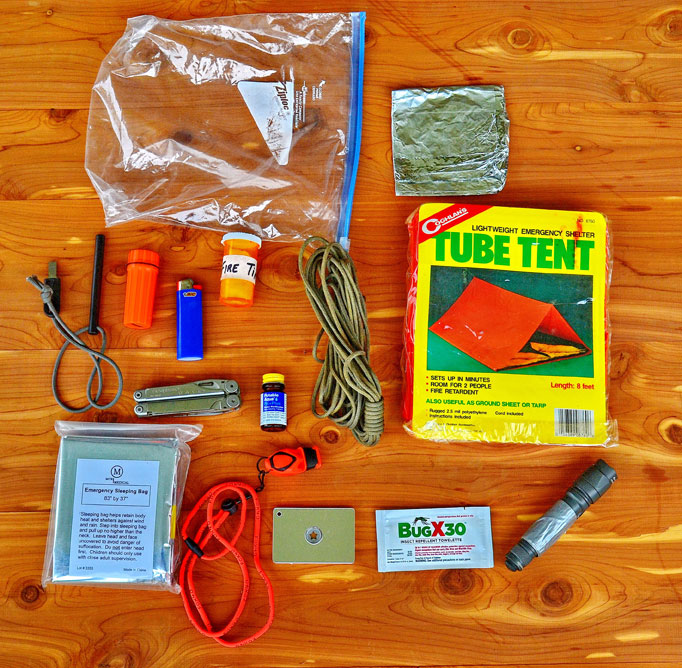
Objective of Survival Training: to make everyone aware of the importance of keeping stress levels low and keeping a positive mindset. This will help to avoid panic and rash decision making so that a well thought out plan of survival can be put into action.
1. Shelter
- Manmade – tarps, emergency blanket/poncho
- Natural – tree limbs, caves/overhangs
2. Water
- Natural – springs and rivers
- Water Catches – rain, dew
3. Fire
- Handmade devices – magnesium and flint
- Lighter
- Matches
4. Food:
- Vegetation – berries, leaves and roots
- Animals – snares, club, and improvised tools
















